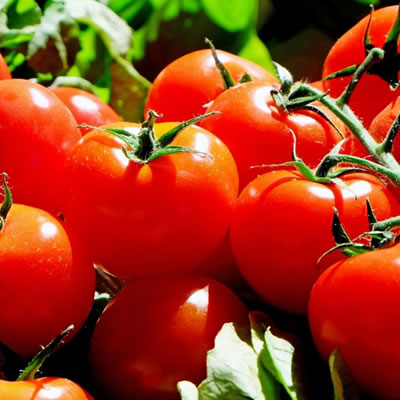Tomatoes
If you have a garden, your tomatoes are probably living their best life right about now as they tend to ripen toward the end of summer. This is your friendly reminder not to let any of that fruit-disguised-as-a-veggie go to waste this year. This is because tomatoes are an often-overlooked nutritional powerhouse. “Tomatoes are one of those foods that everyone takes for granted.
In terms of the nutrients in tomatoes, the best is lycopene, a natural antioxidant that gives tomatoes their red color. Lycopene affects the cardiovascular system in a number of ways. It helps control blood pressure; prevent atherosclerosis; lower LDL cholesterol and triglycerides.
Tomatoes are a good source of vitamin C and potassium. Tomato puree has more potassium than fresh tomatoes. A medium tomato has 292 mg of potassium while a medium banana has 422 mg.
Studies have linked lycopene consumption to a lower risk of developing age-related macular degeneration and potentially cataracts. An increase in dietary consumption of lycopene was associated with decreased prostate cancer development.

Go for locally sourced organic tomatoes or a quality puree
The researchers found that organic tomatoes had significantly higher levels of vitamin C, sugar and lycopene. The extra sugar improves the taste, but the increased levels of lycopene ramps up organic tomatoes' health profile. Vitamin C levels were 30+% higher in the organic tomatoes.
Tomato ketchup?
Tomato ketchup contains lycopene in similar qualities compared to a tomato sauce, but they typically contain dozens of chemical additives. Just one tablespoon of Heinz Ketchup contains 4 grams of sugar, according to the brand's website. Also many ketchup brands use high-fructose corn syrup. If you or your children are ketchup addicts, then you might want to consider making your own......
Easy ketchup recipe:
- apple cider vinegar + water
- tomato paste (1 large 300g can)
- 1/3 to 1/2 cup organic honey
- salt
- garlic powder
- onion powder
- optional cinnamon or allspice
Starting with tomato paste is what makes this recipe quick. Just drop all the ingredients in a medium-sized saucepan, bring to a boil and then turn to low to simmer for 15 to 20 minutes.
Tomato purée is made by lightly cooking tomatoes and then puréeing the softened product into a liquid. Tomato paste is cooked longer than its puréed counterpart. The cooked tomatoes are strained to remove the seeds and skins, before being cooked again to reduce the concentrate into a thick paste.
